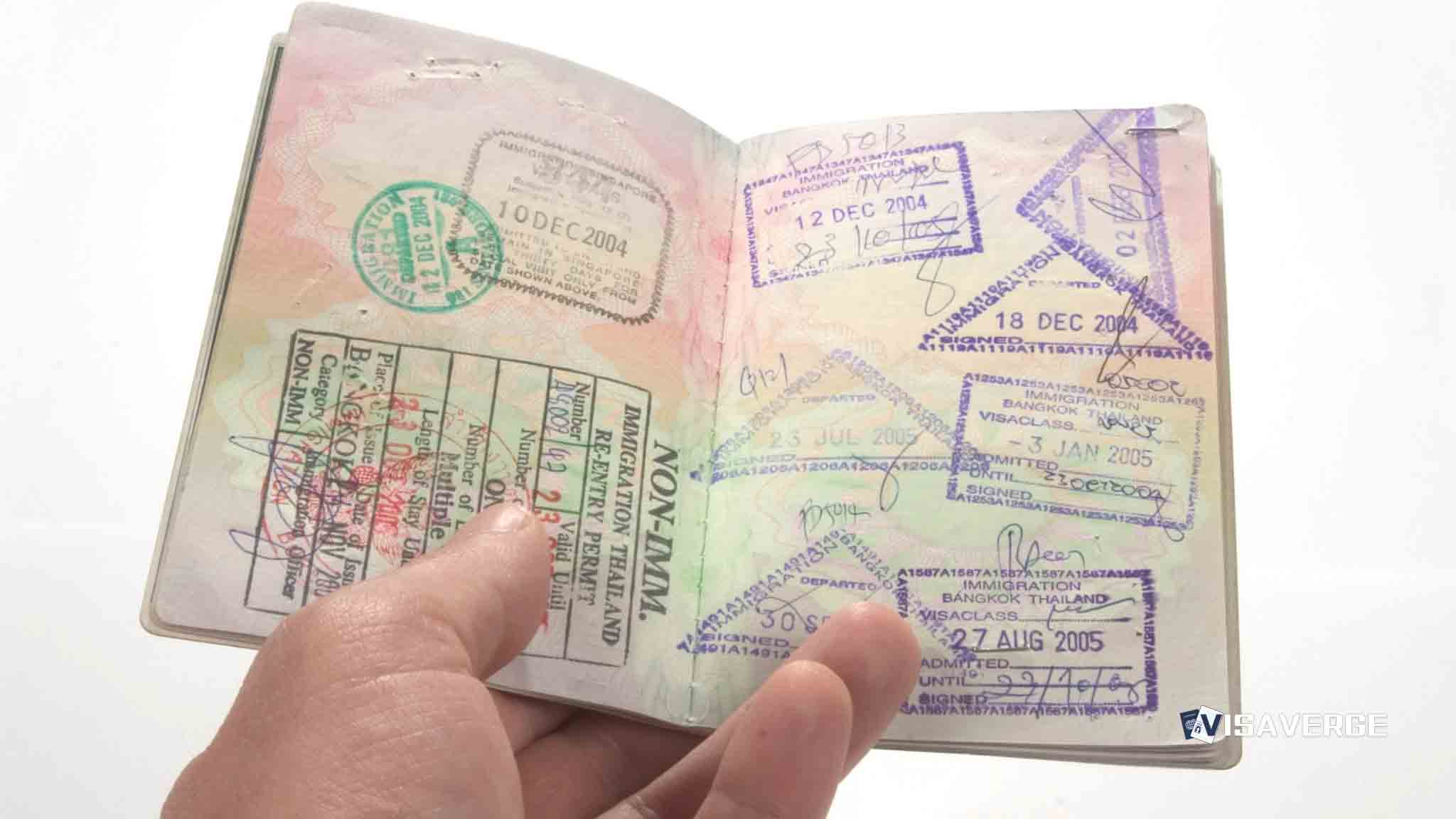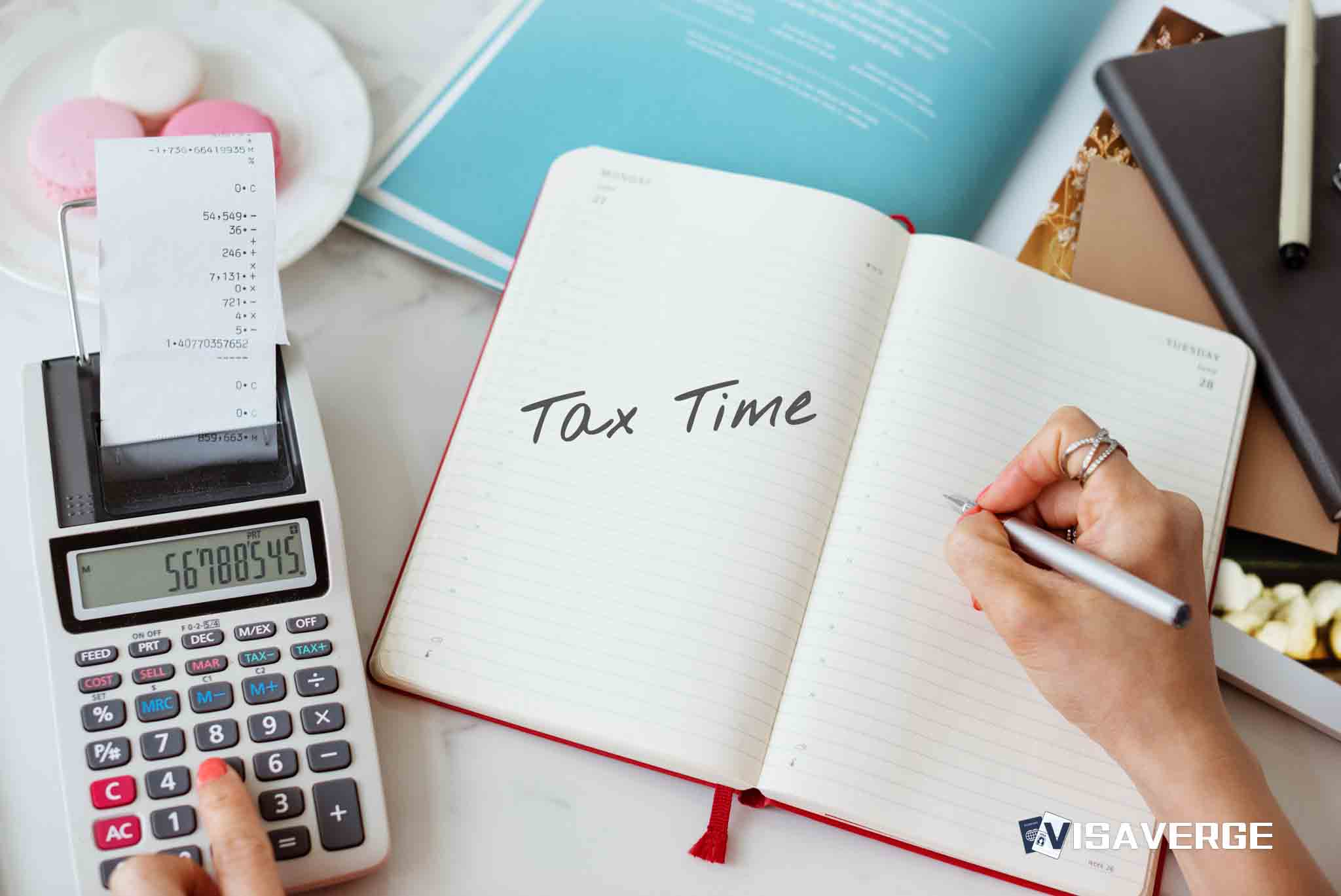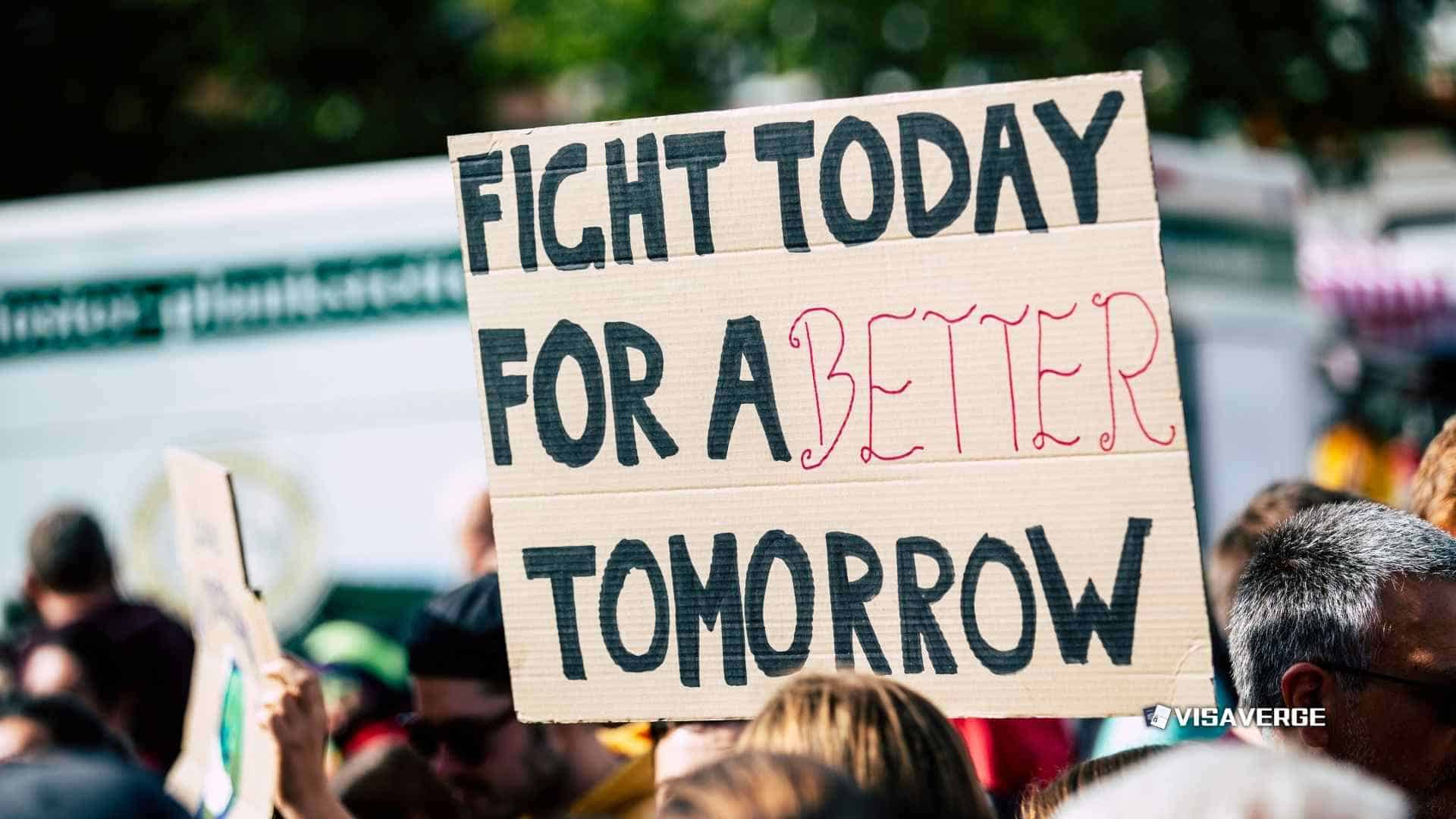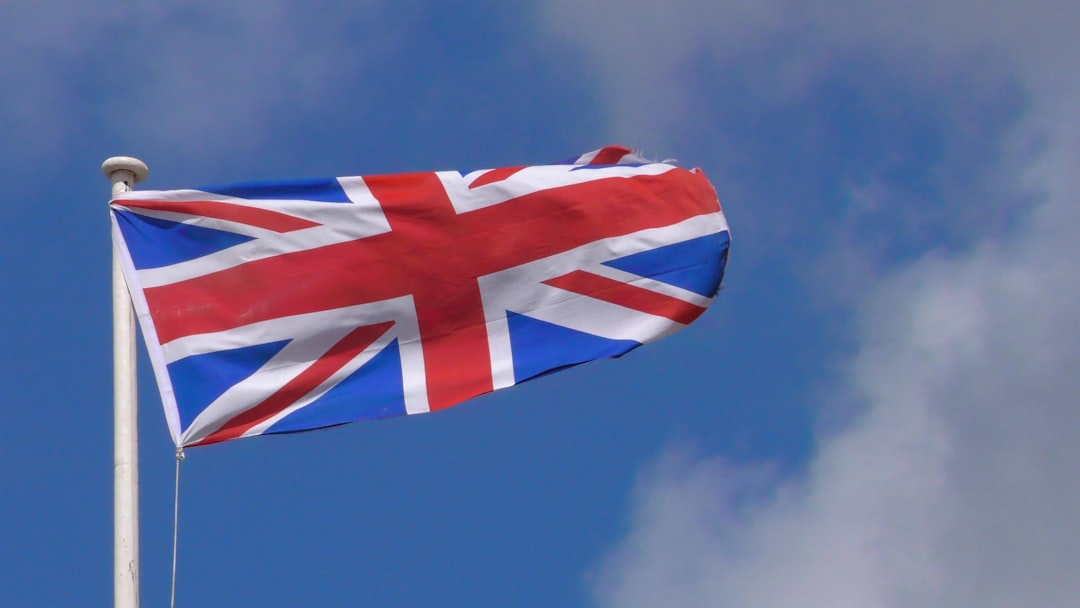Key Takeaways
• U.S. visa wait times exceed 500 days in Colombia, threatening attendance for 2026 World Cup and 2028 Olympics.
• Congress urges White House-led task force, increased visa officers, and border technology improvements to fix backlogs.
• Economic losses could reach billions if visa delays block fans, athletes; reforms target faster, secure processing.
Executive Summary
With the United States 🇺🇸 set to host two of the world’s biggest sporting gatherings—the 2026 FIFA World Cup and the 2028 Los Angeles Olympics—Congressional leaders are urging action to speed up and improve the visa process. Their calls highlight serious concerns about long wait times at U.S. embassies and how this could affect fans, athletes, and the country’s global image. At the heart of the issue is the need to fix the visa backlog, which currently impacts people from several countries hoping to attend these events. Proposals from Congress and expert commissions recommend steps such as appointing a White House-led task force, hiring more visa officers, setting tight visa review deadlines, and improving border efficiency. Adopted together, these suggestions could help the United States 🇺🇸 welcome the world, boost economic investment, and uphold security. However, delays or inaction could harm both the experience for visitors and the country’s reputation as a global host.

Introduction
The United States 🇺🇸 is about to become the center of the global sports stage, with the 2026 FIFA World Cup and the 2028 Los Angeles Olympics drawing millions from around the world. These events will invite athletes, fans, and delegations from nearly every country, making the nation’s visa process a key topic of concern. Congressional leaders, along with sports officials and industry groups, warn that current backlogs and slow processing may hold the country back. The need for quick, fair, and secure travel to the U.S. is more urgent than ever, and action from the government could decide the ultimate success of both events.
Background
The visa process lets people from other countries apply to visit, work, or take part in special activities, such as international sports tournaments. For global gatherings like the World Cup and Olympics, host countries must make it easy for visitors to enter for a specific period. However, due to pressure from increased travel, security needs, and limited staff, the U.S. visa process now faces serious slowdowns. For example, people from Colombia have had to wait over 500 days just for a visitor visa appointment, and delays in countries like Nigeria, Mexico, and Costa Rica leave thousands uncertain if they’ll make it to see the games.
The impact reaches beyond the fans and athletes themselves. Hosting such events also means big economic benefits. Southern California alone hopes to see $600 million in spending from the World Cup, with the whole country expecting $3.75 billion from increased travel, tourism, and commerce. Long visa backlogs, though, may shrink those gains and disappoint global visitors eager for these once-in-a-generation experiences.
Analysis
Current visa delays
A recent letter signed by 49 members of Congress and led by Rep. Sydney Kamlager-Dove brought the urgency of the visa crisis to Secretary of State Marco Rubio’s attention. Six countries currently face U.S. embassy visa wait times longer than the start of the World Cup, according to figures cited by Congressional leaders:
- Colombia: 507 days
- Nigeria: 377 days
- Mexico: 350 days
- Ivory Coast: 280 days
- Costa Rica: 279 days
This fragile situation threatens to lock out tens of thousands of potential visitors and undercut the benefits of these landmark events. For instance, economic estimates show that California could lose a share of the $600 million in anticipated income if people are unable to attend because of visa barriers.
Tasks and reviews by Congress
Recognizing the problem, Congressional leaders—across both parties and from many states—are taking action. Besides the bipartisan letter, they are working on new laws and special task forces:
- Task Force on Enhancing Security for Special Events: Announced by House Homeland Security Committee Chairman Mark Green and Vice Chairman Michael McCaul, this group will focus on security and visa readiness for global events through 2029.
- New laws proposed by Rep. Carlos Gimenez: Gimenez wants a federal unit focused on the needs of high-profile gatherings, including the World Cup and Olympics.
- Recent public hearings: In April 2025, a House subcommittee checked on progress to fix travel and visa systems in time for these mega-events.
So far, Congressional efforts are joined by industry groups and travel experts. Reports by the Commission on Seamless and Secure Travel and the U.S. Travel Association call for more coordination, faster visa reviews, and better border staffing, showing how the visa issue affects the whole travel system.
Economic and social risks
If these issues remain unsolved, the country stands to lose on several fronts. First, millions in economic gains could slip away if people skip visiting because they can’t get a visa in time. Second, the United States 🇺🇸 risks its global standing—showcasing the nation as a place open to the world. Third, there’s a chance that fans and athletes unable to attend will see the U.S. as an unwelcoming spot, which could hurt future global partnerships.
Policy Options
Congress and commissions are currently looking at several possible actions:
- White House-led event task force: Appoint a senior official to coordinate all areas—visa processing, border controls, public safety—across government agencies, ensuring close attention at the highest level.
- Boost visa staffing and review time: Increase the number of officers at U.S. embassies, especially in “high-demand” countries, so that visitor visa appointments stay within a 30-day window.
- Extend B-1/B-2 visa validity: Widen the length of visitor visas for trusted travelers by two more years, making repeat travel for future events—and tourist returns—much smoother.
- National Vetting Service: Set up a single national office to quickly review visitor visa requests, aiming to finish most in 30 days or less.
- Bigger “Secure Travel Partnership”: Bring more countries into simplified travel programs (a path to the Visa Waiver Program), letting more people come with fewer barriers while still upholding strict checks.
- Full customs staffing and new border tools: Assign enough customs officers at big airports and add biometric scanning. This technology can speed up border crossings and help track entries and exits more clearly.
Evaluation of Policy Options
Each proposed step has clear benefits and some risks:
- White House-led task force: Pro: Ensures all branches of government stay focused. Con: Needs fast, ongoing support from the highest office.
- Boosted visa staffing and short deadlines: Pro: Cuts delays, gets more fans and athletes in on time. Con: Could prove expensive in the short-term and requires hiring and training many officers.
- Extending visa terms: Pro: Makes it easier for repeat guests and those attending more than one event. Con: May require extra vetting for riskier applicants.
- National Vetting Service: Pro: Clearer process, faster for most simple cases. Con: May risk missing special cases or details without direct interviews.
- Bigger Secure Travel Partnership: Pro: Welcomes more countries, expands access, and can help tourism. Con: Needs careful screening to be safe.
- Customs staffing and biometric tools: Pro: Reduces lines, improves security, and reassures travelers. Con: High upfront cost, privacy concerns may arise.
Case Study: Olympic Committee’s Response
Casey Wasserman, head of the Los Angeles Olympics 2028, spoke directly to the International Olympic Committee about visa worries. He said that “irrespective of politics today, America will be open and accepting to all 209 countries for the Olympics.” Wasserman also shared news of “significant strides” in working with President Trump and Secretary Rubio to make sure visas will not block athletes or delegations. Most coming for the games will use the B-1/B-2 tourist visa, which covers athletes not getting paid in the U.S.
Wasserman’s comments show that, with high-level assurances and planning, the country can resolve some fears about people being shut out. His outreach helps reassure both event organizers and the world that the United States 🇺🇸 aims to be a welcoming host.
Recommendations
To ensure successful global sporting events, Congressional leaders and government officials should:
- Support a White House-led event task force: This will keep top-level focus and coordination on every part of the process, from visas to customs.
- Fully staff U.S. embassies in key countries: To shrink outrageous waiting times—such as over 500 days in Colombia—bring in temporary officers or shift staff to the busiest posts.
- Put the National Vetting Service plan into action: Develop a method to process visitor visas in less than 30 days where possible, especially for ticket-holders and event participants.
- Review and, where safe, extend B-1/B-2 visa validity: This change would make global sporting travel easier for years to come and allow easier returns for fans, athletes, and journalists.
- Expand the Secure Travel Partnership: Consider more countries for simple, safe travel options, based on strong security reviews.
- Invest in border technology and customs teams: Fund tools and staff to clear big airport arrivals quickly while keeping strict oversight on entry and exit.
- Monitor and adjust reforms after each event: Collect feedback, measure outcomes, and update policies again before the Olympics and future events.
- Communicate early and clearly with the world: Through embassies and event organizers, keep attendees informed about requirements, timelines, and progress. This can calm concerns and help people plan.
Addressing Possible Challenges
Some may worry that speeding up the visa process could lower security. To manage this risk, new hires and better technology must come with strong training and oversight. The goal is to welcome guests, but not cut corners on background screening or document checks.
Others may point to the cost and complexity of these changes. However, the expected economic benefits, plus the country’s worldwide reputation, make these investments a worthy tradeoff. Missed opportunities, if people can’t attend, would likely cost much more over time.
Conclusion
Congressional leaders, agency officials, and industry voices agree: The United States 🇺🇸 faces a rare chance—and a challenge—in getting ready for the FIFA World Cup and Los Angeles Olympics. Fixing the visa process sits at the center of success or failure. By acting on recommendations for a task force, more staffing, quicker review, and better communication, the country can welcome record numbers, drive billions in new spending, and remind the world that it remains open, safe, and inviting. Timely, well-planned reform is the smart way forward for everyone—from the fans and athletes to local businesses and the nation’s global image.
For visitors interested in the current requirements and updates about applying for visas ahead of these events, the U.S. Department of State’s official website provides step-by-step guidance and the latest news.
As reported by VisaVerge.com, careful action now by Congressional leaders could decide whether these events fulfill their promise or fall short due to avoidable roadblocks. Clear, steady work on the visa process will help ensure the United States 🇺🇸 stands ready to host—and welcome—the world.
References
- https://www.ustravel.org/press/new-report-details-necessary-travel-reforms-fifa-world-cup-olympics-mega-decade-events
- https://homeland.house.gov/2025/04/12/we-risk-falling-behind-if-we-dont-act-swiftly-homeland-republicans-examine-the-us-travel-system-ahead-of-fifa-world-cup-2028-summer-olympics/
- https://markgreen.house.gov/2025/5/chairman-green-vice-chairman-mccaul-announce-bipartisan-task-force-on-enhancing-national-security-for-upcoming-fifa-2026-2028-olympics-us-250th-anniversary
- https://www.prnewswire.com/news-releases/new-report-details-necessary-travel-reforms-before-fifa-world-cup-olympics-mega-decade-of-events-302380166.html
- https://www.asianhospitality.com/us-air-travel-worldcup-2026/
Learn Today
Visa backlog → A large accumulation of visa applications pending longer processing times than usual.
B-1/B-2 visa → A U.S. visitor visa type for tourists and business travelers, often used for sports event attendees.
White House-led task force → A senior government group coordinating visa, border, and security efforts across agencies for major events.
Secure Travel Partnership → A program expanding visa-free travel to trusted countries with strict security reviews.
National Vetting Service → A proposed centralized office for faster, unified visa application reviews aimed at 30-day processing times.
This Article in a Nutshell
The U.S. faces urgent visa delays ahead of the 2026 World Cup and 2028 Olympics. Congress demands reforms to reduce wait times, increase staffing, and improve border efficiency, ensuring millions can attend and boosting billions in economic impact, while maintaining security and global reputation.
— By VisaVerge.com
Read more:
• New Zealand Golden Visa Surge Fueled by Anti-Trump Anger
• New Zealand launches Golden Visa with lower investment requirements
• Ukraine’s trade visa-free regime with EU to end in June 2025
• China’s inbound tourism climbs after changes to visa policies
• Busan to ease student visa rules under Regional Specialized Visa Program













